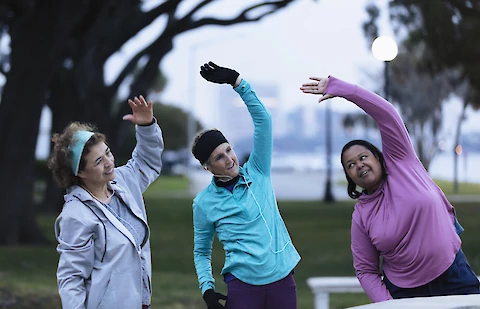
How to Prepare for the End of Daylight-Saving Time on November 6
Seasonal daylight changes can tamper with a person's circadian rhythms, and this can be made more difficult with the end of Daylight Saving Time. This year, when most Americans set their clocks back an hour, is there anything to help mitigate mood changes and often waning energy levels?
Here are some tips to smoothen the transition into winter's shorter days and prevent the feeling of isolation many seniors feel this time of year.
1. Get a step ahead of the time change
When individuals gradually adjust their sleep time two to three days before the end of Daylight Saving Time, there will be less disruption to their sleeping patterns. During this time, and shortly after, it's a good idea to skip daytime naps.
2. Invest in therapeutic lighting
There is evidence that light therapy can help prevent mood disorders when the days become shorter. There are special bulbs and light boxes on the market that can provide artificial sunlight, but at the very least, more ambient light from regular LED bulbs can lift spirits. As an added benefit, better lighting also reduces the risk of trips and falls.
3. Get creative with socialization when Daylight Saving Time ends
Many seniors prefer not to drive at night due to vision problems, and this poses a challenge to their social lives—which are, of course, essential to their well-being. Fortunately, online video conferencing apps can bring people face-to-face, if only through the computer screen.
While most video chat platforms are fairly straightforward, less tech-savvy seniors might appreciate the help of a friend, relative, or home care specialist in Irvine, Santa Ana, Tustin, or South Orange County to get them connected. But it's worth the effort!
4. Increase vitamin D intake
According to medical studies, vitamin D can help reduce depressive symptoms when natural daylight is decreased. The decision to take vitamin D supplements is up to individuals and their physicians, who may already prescribe it to enhance calcium absorption—an essential step in preventing and treating osteoporosis.
5. Add exercise to the schedule
People sleep better when they've had a good workout, and exercise can also help regulate moods. While seniors might not be comfortable walking alone after dark, they might consider bringing along a friend, joining fitness classes at a local senior center, or even going on "mall walks". There are several opportunities to get exercise and socialization in the South Orange County area.
- Tustin Area Senior Center: (714) 573-3340, 200 S. C Street, Tustin, CA 92780
- Santa Ana Senior Center: (714) 647-6540, 424 W. 3rd Street, Santa Ana, CA 92701
- Rancho Senior Center: (949) 724-6800, 3 Ethel Coplen Way, Irvine, 92612
Brighten Up the Season with Home Care Professionals
Seniors living in Irvine, Santa Ana, Tustin, and nearby areas who want assistance with day-to-day activities like getting around town after dark, remembering to take medications on time, or just enjoying some companionship can get in touch with Senior Helpers of South Orange County. Home caregivers from Senior Helpers help make the darker days of winter a bit brighter and empower seniors to live more independent, active lives. Contact us today!